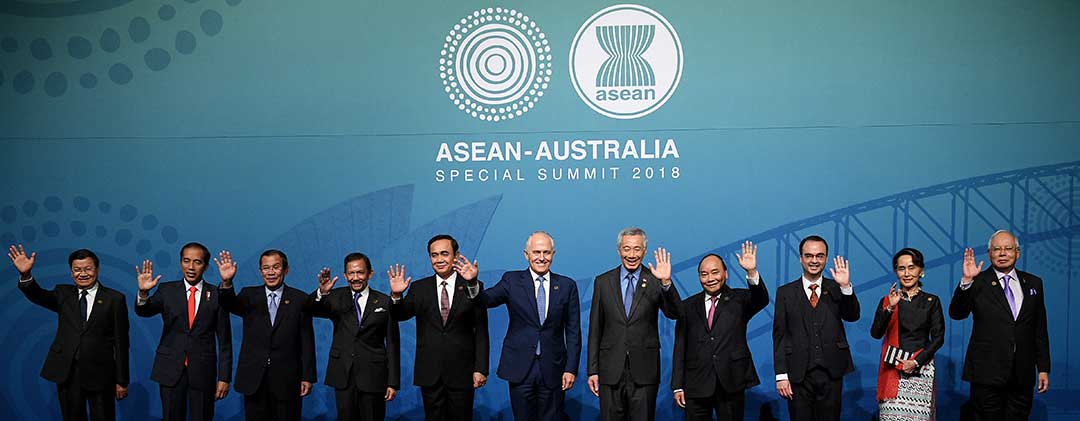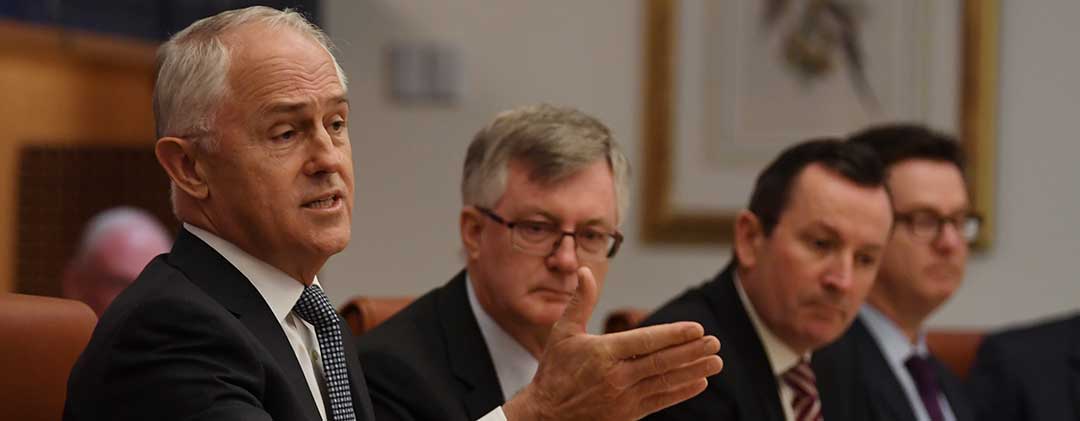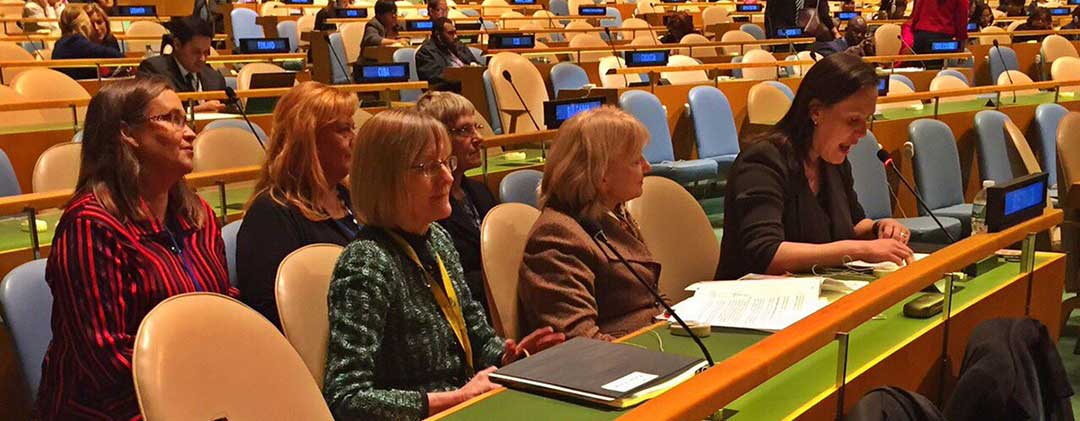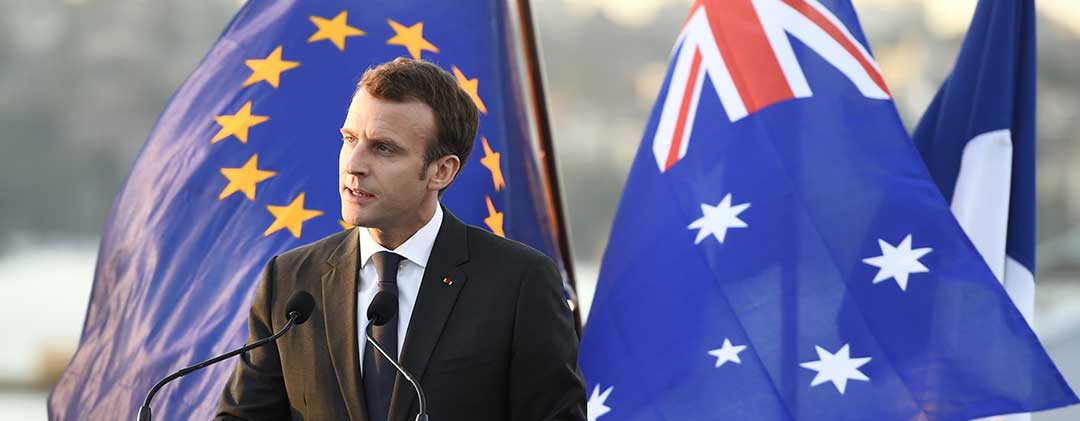Purposes 1 and 2
- Supporting the Prime Minister as the head of the Australian Government, the Cabinet and portfolio ministers.
- Providing advice on major domestic policy, national security and international matters.
The results are listed against the relevant activity, KPI and measurement from the Corporate Plan 2017–2021 and relevant targets from the Portfolio Budget Statements 2017–18.
Results were based on an independent survey of stakeholders, analysis of system-based data and an internal assessment illustrated by case studies.
Policy Advice
Over 2017–18, PM&C provided advice on domestic, international and national security developments.
| Activities | KPI | Performance Measurements | Key Results |
|---|---|---|---|
| Policy advice | Achieved | ||
|
Provide high-quality and timely advice on major domestic policy, national security and international matters to support the Prime Minister, |
The Prime Minister, portfolio ministers and the Cabinet are satisfied with the quality and timeliness of advice and support provided. Demonstrate an understanding of policy issues and provides a whole-of-government perspective. |
Feedback from the Prime Minister, portfolio ministers, the Cabinet, ministerial officers and the Executive shows a high level of satisfaction with the quality and timeliness of advice received |
Achieved a result of 79 against a target of 71 (highly satisfied). Stakeholders, including the PM&C Executive, provided feedback against both KPIs.
|
| Use of case studies, independent panels or providers that show PM&C significantly influenced decision-making by government. | Achieved. | ||
| 85% of responses to requests for briefs are delivered within agreed timelines. | |||
| Achieved a result of 93% of responses delivered to timelines against a target of 85%. |
The following case studies support the achievement of the activity.
Case study - ASEAN-Australia Special Summit 2018
In 2018, Prime Minister Malcolm Turnbull welcomed leaders from the Member States of the Association of Southeast Asian Nations (ASEAN) and the Secretary-General of ASEAN to the ASEAN-Australia Special Summit in Sydney. The event was held over two days on 17–18 March 2018. It was the first time Australia had hosted a summit for ASEAN leaders.
The summit was an unprecedented opportunity to strengthen relations with ASEAN and underlined Australia’s commitment to remaining a leading security, economic and development partner for South-East Asia.
Leaders issued the Sydney Declaration, committing to closer cooperation to shape a secure and prosperous region for our people. To give effect to the declaration, Australia and ASEAN members will take forward 15 new initiatives in areas including counter-terrorism, security, cyber, education and education cooperation.
Major events run alongside the leaders’ summit included a counter-terrorism conference attended by senior officials from Australian and ASEAN member governments, a CEO forum and an SME conference that drew in representatives from leading Australian and regional businesses.
The Special Summit was an example of collaboration across government,business and industry groups to deliver an outcome that advanced Australia’s significant economic and security interests in and with ASEAN.

Case study - Naval Shipbuilding Enterprise
On 16 May 2017, Prime Minister Malcolm Turnbull announced the Government’s $89 billion Naval Shipbuilding Plan. This long-term plan sets a blueprint for building submarines, major surface combatants and minor naval vessels at Osborne Naval Shipyard in South Australia and the Henderson Maritime Precinct in Western Australia. Investment will also cover enabling infrastructure,workforce and industry requirements.
The plan is one of the most ambitious construction enterprises in Australia’s history and outlines the national effort required to establish a sustainable sovereign naval shipbuilding enterprise. This national endeavour requires unprecedented collaboration and partnership across all sectors if it is to be fully realised.
A Secretaries Committee on Shipbuilding (an adjunct to the Secretaries Committee on National Security) was established to set the strategic direction and integrated thinking required to work through and deliver the plan.
Over the performance period, PM&C worked with relevant agencies on all aspects of naval capability and implementation of naval projects, infrastructure works and education and training initiatives, including:
- strengthening the connections between national security agencies and expertise in education, training, employment, infrastructure and industry
- continuous engagement with other agencies through senior executive working groups (co-chaired by PM&C and Defence) to drive the development of policy advice and implementation
- establishing a Naval Shipbuilding Coordination Office and Deputy Secretary Shipbuilding in Defence to consolidate this work.
Efforts to date have seen a growing enterprise focus and commitment to delivering this ambitious policy agenda. Integrated work teams and innovative thinking continue to drive this work and create the partnerships needed to deliver a sustainable sovereign naval shipbuilding industry.
Case Study - Insurance Working Group
Parts of Northern Australia are particularly susceptible to extreme weather events like floods and cyclones. This has caused insurance companies to raise their premiums for those living in these areas.
The Northern Australia Strategic Partnership (NASP) provides high-level leadership on the Northern Australia agenda. The Prime Minister is a member of this partnership.
At its meeting on 8 June 2017, the NASP agreed that the heads of PM&C and the Departments of Premier and Cabinet in New South Wales and Queensland would explore ways to address high insurance premiums in flood and cyclone prone areas.
PM&C led a ‘virtual’ Insurance Working Group (IWG) made up of officials from Commonwealth agencies, the New South Wales and Queensland Departments of Premier and Cabinet, and the Queensland Treasury.
IWG team members operated from their home departments, coming together for a series of intense workshops. The group reviewed previous studies and consulted with insurers, industry bodies and Queensland Government agencies involved in mitigation and response to natural disasters.
The IWG report examined options and made recommendations aimed at reducing insurance premiums in cyclone-prone areas. The recommendations cover a broad range of issues:
- disclosure and transparency around insurance
- the availability and use of data so that risk around cyclones and floods is better understood and can inform planning processes
- government and household mitigation
- Australian building standards.
The report was provided to Prime Minister Malcolm Turnbull and the Premiers of Queensland and New South Wales, and at the 9 February 2018 NASP meeting an action plan to improve insurance affordability in vulnerable areas was agreed.
Case study - Special meeting of the Council of Australian Governments on Counter-Terrorism
In October 2017, the Prime Minister convened a special Council of Australian Governments (COAG) meeting with state premiers and territory chief ministers, and the President of the Australian Local Government Association, to consider the nation’s laws and practices to protect Australians from violent extremism and agree to a nationally consistent approach to counter-terrorism.
PM&C played a crucial role in organising and facilitating the Special COAG meeting, with Commonwealth-State Relations Branch (CSRB) working jointly with the Centre for Counter-Terrorism Coordination (CCTC). CCTC staff were embedded in CSRB in the lead-up to the Special COAG to ensure seamless policy and logistical coordination.
There were a number of notable outcomes of the meeting. Specifically, First Ministers:
- signed the updated Intergovernmental Agreement on National Counter-Terrorism Arrangements
- agreed to establish a National Facial Biometric Matching Capability and signed the associated Intergovernmental Agreement on Identity Matching Services
- agreed to enhance the existing Commonwealth pre-charge detention regime under the Crimes Act 1914
- agreed to a national approach to the assessment and management of people with extreme fixations who may be radicalised to violence.

Collaboration
In 2017–18, PM&C worked with other agencies to strengthen relationships and build partnerships that influence domestic and international dialogue and policy decisions.
| Activity | KPI | Performance Measurement | Result |
|---|---|---|---|
| Collaboration | Achieved | ||
|
Work directly or indirectly with other agencies and external parties to strengthen relationships. Build partnerships that influence domestic and international dialogue on policy decisions and outcomes. Provide leadership to the APS in relation to government decisions, policies and strategic priorities. |
Support timely, relevant and effective collaboration across government and external parties. |
Feedback from external stakeholders demonstrates effective collaboration between the Department and other parties on specific policy decisions or outcome |
Achieved a result of 73 (highly effective) against a target range of 51 to 70 (effective).
Achieved
|
| Use of case studies, independent panels or providers that show PM&C significantly strengthened relationships and facilitated priorities. |
The following case studies support the achievement of the activity.
Case study - 62nd session of the Commission on the Status of Women
The United Nations (UN) Commission on the Status of Women (CSW) is the principal global intergovernmental body exclusively dedicated to the promotion of gender equality and the empowerment of women. Australia will serve a three-year term on the UN CSW, from March 2019. Australia was allocated a seat for the ‘Western Europe and Others Group’.
PM&C worked with colleagues in the Department of Foreign Affairs and Tradeto globally campaign for the support of UN member countries in the 2018 CSW election, promising a principled and pragmatic approach to advance gender equality and leveraging the momentum of our successful 2017 UN Human Rights Council campaign in which gender was a key pillar of our bid.
Membership provides a platform to complement gender equality priorities pursued at the Human Rights Council during Australia’s 2018–2020 term, and presents a rare and opportune occasion to advance our global leadership on gender equality and represent our domestic and regional priorities on a transnational scale.
In pursuing our priorities, we work in close partnership with portfolio agencies on key gender equality priorities.

Case study - BETA Energy Market Work
The Behavioural Economics Team of the Australian Government (BETA)is conducting a suite of projects looking to help energy consumers find better deals.In December 2017, our advice to the Australian Energy Regulator (AER) was incorporated in its review of the Retail Pricing Guidelines which set out how energy retailers must provide information about their plans. We are now partnering with the Department of the Environment and Energy to test different approaches to promoting customer engagement in the energy market through improved bill design. This work will include a framed field experiment with around 4,500 Australians and will draw on a range of innovative techniques, including eye tracking to assess consumers’ engagement with visual information presented on energy bills.
Case study - Heads of Agreement on public hospital funding and health reform
The Heads of Agreement between the Commonwealth and the states and territories on public hospital funding and health system reform was signed and presented at the COAG meeting on 9 February 2018. The agreement outlines jurisdictions’ joint priorities for the next hospitals agreement and settles the Commonwealth’s funding arrangements for the five-year period 2020–21 to 2024–25.
Public hospital funding is one of the largest agreements between the Commonwealth and state and territory governments. Settling $130 billion of Commonwealth expenditure for the next five-years agreement was a significant achievement.
PM&C played an important role, working closely with colleagues across Commonwealth departments and with state and territory officials to draft terms for the agreement, including long-term funding arrangements, for discussion between the Prime Minister and all First Ministers.
To develop the new agreement and future funding arrangements, PM&C undertook detailed analysis of the range of options and reform priorities available to support long-term improvements in the health system.
The terms of the Heads of Agreement provide for increased funding while focusing all governments on improved quality and health system reform for the benefit of all Australians. It has helped progress one of the Government’s key intergovernmental commitments-settling long-term public hospital funding in 2018.
Case study - National Disability Insurance Scheme in Western Australia
The National Disability Insurance Scheme (NDIS) is a national scheme designed to give all eligible Australians with disability access to the reasonable and necessary supports they need to live an ordinary life.
Western Australia (WA) originally elected to operate the NDIS as a state-run scheme. PM&C played a key role in Commonwealth–state negotiations concerning WA’s transition to the nationally-run NDIS.
PM&C worked closely with the Department of Social Services and the National Disability Insurance Agency (NDIA), other central agencies and the WA Government to progress negotiations and reach an agreement that is consistent with the agreements with other states and territories.
In December 2017, Prime Minister Malcolm Turnbull and the WA Premier signed a Bilateral Agreement and Heads of Agreement to implement the nationally-run NDIS in WA. From 1 July 2018, the NDIA assumed responsibility for the delivery of the NDIS in WA, as is the case in every other state and territory. The signing of the agreement represented the final step towards achieving a truly national disability scheme.
Support the functions of government
In 2017–18, PM&C provided support to the Prime Minister, the Cabinet, portfolio ministers and assistant ministers, the Cabinet Secretary and the former Governors-General and their offices.
| Activity | KPI | Performance Measurements | Result |
|---|---|---|---|
| Support the functions of government | Substantially Achieved | ||
|
Support the Prime Minister, the Cabinet, portfolio ministers and assistant ministers, the Cabinet Secretary and the former Governors-General and their offices. |
Internal and external stakeholders are satisfied with the quality, relevance and timeliness of the advice and support services provided by the Department. |
Feedback from external stakeholders demonstrates a high level of satisfaction with the quality and timeliness of advice and support received.
|
Achieved a result of 66 (satisfied) against a target of 71 (highly satisfied).
|
| 85% of responses to requests for ministerial correspondence are delivered within set timelines. | Achieved a result of 64% against a target of 85%. |
Policy coordination
In 2017–18, PM&C coordinated responses and contributions to government policies, assisted in shaping their development and reported to government on the impact of government decisions.
| Activity | KPI | Performance Measurements | Result |
|---|---|---|---|
| Policy coordination | Substantially Achieved | ||
|
Coordinate responses and contributions to government policies to assist in shaping their development. Evaluate and report to government on the impact of government decisions in line with agreed overall outcomes. |
Coordinate and contribute to timely and effective policy development across government. |
Feedback from external stakeholders demonstrates a high level of satisfaction with the quality and timeliness of policy coordination provided. |
Achieved a result of 62 (satisfied) against a target of 71 (highly satisfied).
|
| Use of case studies, independent panels or providers show PM&C effectively contributed to the development of government policies. | Achieved |
The following case study supports the achievement of the activity.
Case study - Embedding the Infrastructure and Project Financing Agency to support government decision-making
PM&C played a lead role in establishing and integrating the Infrastructure and Project Financing Agency (IPFA) as a pivotal and trusted support agency assisting the Government in being a more informed investor in infrastructure.
The Department provided advice to the Prime Minister and the Cabinet on functions and governance arrangements for the Agency. An internal transition team comprising of departmental officers and secondees from other government agencies was established in July 2017 to get IPFA up and running.
Since IPFA’s establishment, PM&C has leveraged its networks and relationships across government, including with the Department of Infrastructure,Regional Development and Cities, the Department of Finance and the Treasury, to ensure that IPFA is engaged on key matters for which they have specialist knowledge and professional expertise. PM&C also led the appointment processes for IPFA’s interim and permanent CEOs.
In December 2017 IPFA transferred to the Department of Infrastructure,Regional Development, and Cities portfolio.
IPFA recently celebrated its first anniversary. It is now fully operational and its advice is helping to shape the Government’s funding and financing approaches to key infrastructure projects. It is serving as a centre of excellence that is building capacity across government on infrastructure financing.
Monitoring and implementation
In 2017–18, PM&C monitored and supported the development and implementation of government initiatives, policies, programs and reforms across the breadth of public service responsibilities.
| Activity | KPI | Performance Measurements | Result |
|---|---|---|---|
| Monitoring and implementation | Substantially Achieved | ||
|
Develop policies and strategies in line with government priorities. Monitor and oversee the implementation of government initiatives, policies, programs and reform agendas. |
Actively monitor and support the timely development and implementation of government policies and initiatives. |
Feedback from external stakeholders demonstrates a high level of satisfaction with the quality and timeliness of monitoring and implementation provided.
|
Achieved a score of 62 (satisfied) against a target of 71 (highly satisfied).
|
|
Use of case studies, independent panels or providers demonstrates the successful delivery of activities.
|
Achieved
|
||
| Quantitative assessment of the timely delivery of government initiatives and/or commitments. | Achieved through internal tracking of progress on implementation of key government priorities. |
The following case study supports the achievement of the activity.
Case study - Reforming the Australian Government Data System
PM&C played a leading role in the Government’s efforts to unlock the potential of better use of public data to drive economic gains.
In May 2017, in its inquiry into Data Availability and Use, the Productivity Commission recommended a suite of reforms to the way public data is governed, shared and released. In November 2017, the Government agreed to a majority of these recommendations pending a review of data activities across the Commonwealth to inform how the reforms were to be implemented.
PM&C brought together a cross-agency review team, which undertook consultations and a review of data use across the APS. As a result, PM&C developed a policy proposal to government that addressed shortcomings in Government’s data governance system through a new framework overseen by a National Data Commissioner. This proposal was agreed during the 2018–19 Budget process.
PM&C secured funding for the new office of the National Data Commissioner from the nine portfolio agencies (including PM&C) that stand to benefit the most from streamlined data sharing and access arrangements. The office will guide consultations and develop legislation to make more effective use of public data, while maintaining strong privacy safeguards the public have come to expect.
A review of government data activities also provided a picture of how 58 Commonwealth government departments and agencies use data and have invested in their data capabilities.
Secretariat Services
In 2017–18 PM&C provided secretariat services to the Cabinet, the Executive Council and COAG.
| Activities | KPI | Performance Measurements | Result |
|---|---|---|---|
| Secretariat services | Achieved | ||
|
Perform secretariat functions to support the effective operations of boards, committees, councils and the Cabinet and its subcommittees. |
High level of satisfaction with the secretariat support services provided to boards, committees and councils. |
Feedback from boards, committees and councils demonstrates a high level of satisfaction with the timeliness and accuracy of the functions delivered. |
Achieved with a result of 71 against a target of 71 (highly satisfied). |
|
Time frames are met for 90% of Cabinet and Cabinet committee minutes for approval and for lodgement of Executive Council documents. |
Achieved |
The following case study supports the achievement of the activity.
Case study - CabNet Improvement Program
PM&C’s CabNet Improvement Program is developing modern technology to replace the ICT system used to support the Cabinet process. The new system, CabNet+, will improve the way Cabinet information is produced, distributed and consumed across government.
The CabNet+ Viewer was delivered in 2017–18 as the first feature of the new system. The viewer provides electronic access to PROTECTED Cabinet material from desktops and mobile devices. It provides faster and more flexible access to Cabinet material and enables more timely collaboration across government.
The feedback on the CabNet+ Viewer highlights the benefits the program is delivering:
“The system is much more consistent with the demands of our roles, particularly the need to access material quickly and remotely and to collaborate across the department in the provision of comments.”
Senior Executive, The Treasury
The CabNet Improvement Program will deliver more features in the CabNet+ system through 2018 and 2019.
Events
In 2017–18 PM&C played a central role in planning and delivering events, including essential logistical and administrative support for a number of important international and domestic objectives for the Australian Government.
| Activity | KPI | Performance Measurements | Result |
|---|---|---|---|
| Events | Substantially Achieved | ||
|
Coordinate the arrangements for events including the Prime Minister’s overseas visits and official visits by Heads of State and Heads of Government as well as major events and ceremonies. |
Provide timely, relevant and accurate advice to support the coordination of major events, visits and ceremonies along with supporting the implementation and delivery of those events, visits and ceremonies. |
100% of the events planned are delivered within the agreed time frames. |
Achieved |
|
Feedback from stakeholders demonstrates a high level of satisfaction with the relevance and accuracy of the advice associated with the planning of events and with the support for their successful implementation and delivery. |
Achieved a score of 57 (satisfied) against a target of 71 (highly satisfied). |
The following supports the achievement of the activity.
Official visits and events
Prime Minister Malcolm Turnbull undertook a number of important overseas visits this year to participate in multilateral forums and to further enhance Australia’s bilateral relationships. In total, PM&C successfully delivered seven prime ministerial overseas visits to a total of 12 nations:
- Germany (G20), France and the United Kingdom (5–13 July 2017)
- Samoa (Pacific Island Forum) (7–9 September 2017)
- Israel and Sri Lanka (29 October–2 November 2017)
- Vietnam (APEC), China (Hong Kong) and the Philippines (9–15 November 2017)
- Japan (17–19 January 2018)
- United States of America (21–26 February 2018)
- United Kingdom (CHOGM), Germany, Belgium and France (17–26 April 2018).
PM&C successfully delivered on the Guest of Government Program again this year. We managed a significant number of visits to Australia by Heads of State and Heads of Government, including a number of visits related to the ASEAN Special Summit in Sydney in March and visits during the Commonwealth Games on the Gold Coast in April 2018. The level of international engagement continues to increase, with another significant rise in completed visits for this financial year. This year’s visits included:
- Royal Visit by Their Royal Highnesses The Prince of Wales and The Duchess of Cornwall associated with the Commonwealth Games
- Heads of State from Croatia, Niger, Ireland, Germany and France
- Heads of Government from Solomon Islands, New Zealand, Vietnam, Myanmar, Malaysia, and Vanuatu
- Ministers from the United Kingdom, Singapore, Laos, Vietnam and the United Arab Emirates.

PM&C managed 199 airport facilitations for Heads of State and Heads of Government who were transiting or making private visits to Australia—a significant increase on last year’s figures.
In addition to the official hospitality provided during Guest of Government visits, PM&C successfully delivered another 17 events in support of the Prime Minister, including:
- a COAG meeting in Canberra
- receptions for Australia Day, national finalists for the Australian of the Year Awards, and the Special Olympics Australia National Games
- hospitality for the Test Cricket Teams from Australia and England, 2018, and the Prime Minister’s XI cricket match.
PM&C also coordinated State funerals for:
- The Rt Hon Sir Ninian Stephen KG AK GCMG GCVO KBE QC (Melbourne, Vic),
- Lady Florence Bjelke-Petersen (Kingaroy, Qld), and
- The Hon Jocelyn Newman AO (Canberra, ACT).
We coordinated a State memorial service for the Hon Barry Cohen AM (Canberra, ACT).
Portfolio Budget Statements
PM&C also measured our achievements for 2017–18 against criteria set down in Outcome 1 of the Portfolio Budget Statements:
Provide high quality policy advice and support to the Prime Minister and the Cabinet, Portfolio Ministers and Assistant Ministers including through the coordination of government activities, policy development and program delivery.
| Program | Performance criteria | Target | Result |
|---|---|---|---|
| Prime Minister and Cabinet |
|
Maintain or increase stakeholder satisfaction by 2018. |
Substantially achieved The majority of stakeholder targets were met in 2017–18. |
